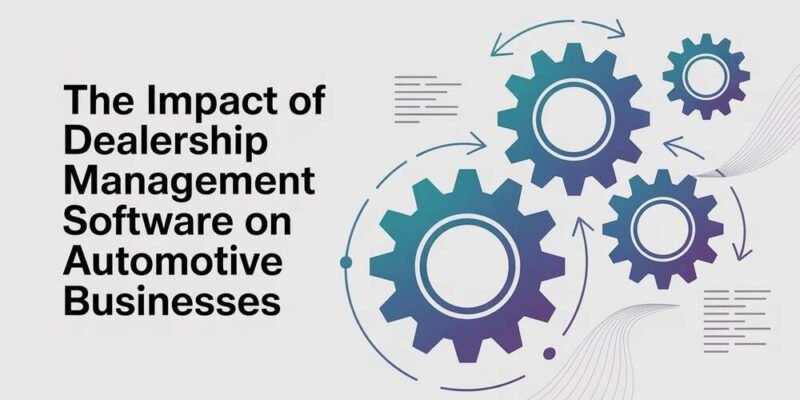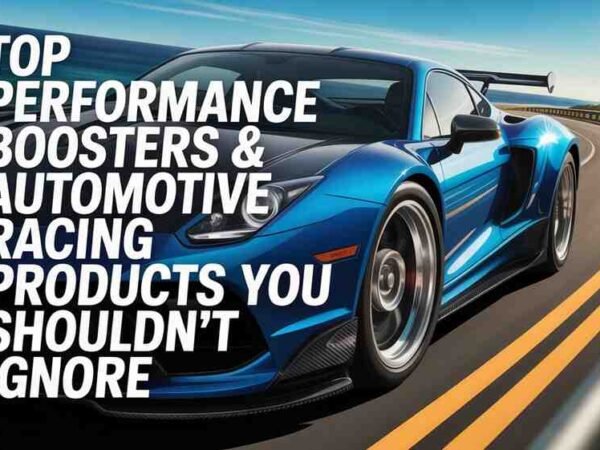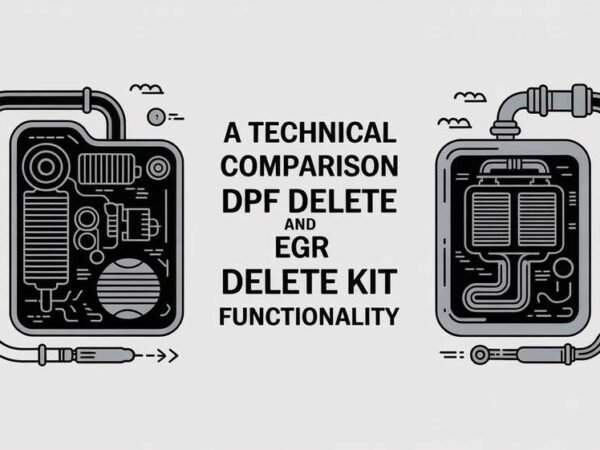In the automotive industry, dealerships strive to operate within tight margins while improving operational efficiency, customer experience, and profit. Dealership Management Software (DMS) stands out as one of the primary solutions for unifying different dealership areas into one system. This article discusses how you can execute a business transformation through a DMS, including its advantages, features, and the primary factors to consider when obtaining a system.
What Is a Dealership Management Software System?
A Dealership Management System (DMS) is a software system that combines multiple dealership services and automates them into a single platform. It usually includes inventory control, a point of sale (POS) system, customer relationship management (CRM), service scheduling, and accounting modules. With such integration, a DMS offers centralization of dealership functions, which helps improve operational efficiency and decision-making.
Key Benefits of Implementing Dealership Management Software
Achievements Using DMS Software With Enhanced Efficiency
A DMS handles daily routines prone to errors and cuts down on busy work, allowing employees the optional time to interact, engage with clients, and make more sales. The investment will automate faster procurement transactions and enable better inventory and service level tracking. As an example, the consolidation of schedule, sales, and finance into a single command hub greatly and vastly alters data management and workflow for the better.
Enhanced Customer Relationship Management
Customer profiles, interactions, and communication can now be personalized due to synchronized CRMs, which also give detailed instructions with data DMS features. Dealers can keep detailed profiles, including interaction history and communication logs, so that all clients can be dealt with personally. This level of their service strategies results in repeat clientele and good referrals.
Inventory Management
Prompt response due to meeting market needs with minimal overstock and stockouts is accomplished through real-time stock processes, with the help of a DMS detailing the stock turnover rate. Auto dealer software boasts real-time price control, built-in sourcing, and ad site integration.
Financial Procedures
Track every expense accurately with DMS and, from its integration, expense per invoice, enabling accurate invoicing and confirming the value of reporting every finance activity tracked.
This integration helps companies stay compliant, monitor cash flow, and make informed financial decisions. Efficiency in managing finances is essential for a company’s profitability. The modern DMS incorporates financial modules that manage invoicing, receivables, and payroll under one roof so that all the data can be accessed easily.
Making Decisions Supported by Data Analytics
A DMS captures data and produces reports showing sales, customers, and production. This allows dealerships to capitalize on the identified gaps and evaluate marketing strategies. In addition, dealerships can make calculated decisions and strategies. With a DMS, the dealership can automate repetitive processes, such as capturing leads and customer data, to design an efficient sales process.
Factors to Consider When Looking for the Best Dealership Management Software
While looking for the best dealership management software, incorporate the following features aligned to your business requirements:
- Complete Integration: The software must incorporate various dealership activities, including but not limited to sales, service, parts, and accounting.
- Easy-to-Use Interface: A simple interface guarantees that any dealership staff can quickly retrain and become productive. Thus, time is saved on training while productivity is improved.
- Possibility for Tailoring: The software’s effectiveness can be increased by adjusting its application to the dealer’s current processes and workflows.
- Scalability: The dealership software must ensure performance remains intact as your dealership expands, accommodating new data, users, and workflows.
- Mobile Accessibility: Staff remotely working with the console increases prompt response flexibility.
- Robust Reporting Tools: Reporting performance indicators and the ability to analyze them even more profoundly is helpful for efficient dealership management.
Implementing Car Dealership Management Software: Best Practices
If you want noticeable improvements using car dealership management software, consider the following recommendations:
- Conduct a Needs Assessment: By understanding your dealership’s pain points and needs, you can select a DMS that fulfills your objectives.
- Engage Stakeholders: Incorporate key users into the selection and implementation phases to facilitate meeting operational demands and gaining buy-in for the software.
- Plan for Data Migration: A plan for how data will be imported into the new system while retaining its integrity and continuity needs to be addressed.
- Provide Comprehensive Training: Staff should be trained sufficiently to ensure system adoption and proficiency and sustain smooth operations.
- Monitor and Evaluate: Feedback on the system should be gathered to ensure proper adjustments and refine processes where needed.
Conclusion
The adoption of automotive dealership management systems can remarkably rationalize your operations. It shifts your dealership’s focus from merely surviving to thriving and marks a sustainable success achieved via operational insights and data-driven decisions. Choosing the right car dealership management software and implementing it precisely prepares your dealership to tackle prevailing industry challenges while ensuring agile adaptability for future expansion.
Do Read: Female Driving Instructors: Choosing Women Behind the Wheel













